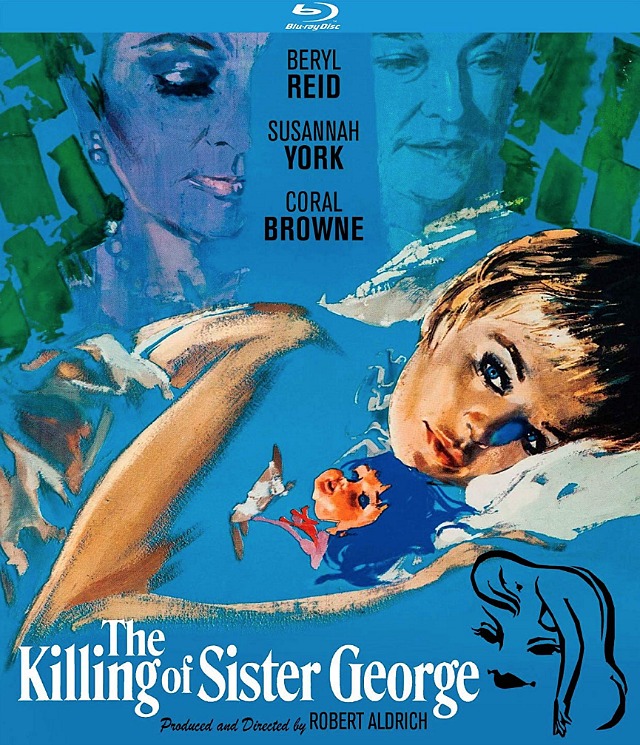Fivethirtyeight says there’s a 21% chance that Beto O’Rourke beats Ted Cruz on 11.6. The current forecast shows Cruz taking 51.8% of the votes compared to O’Rourke’s 46.6%. Out of an estimated 17,600,000 eligible voters, Fivethirtyeight expects less than 7 million — 39.5% — to actually vote. Even though Texas is more Republican than the nation overall and even though Republicans have consistently won Senate seats there over the last 28 years, O’Rourke could win if the apathetic, lazy-ass under-30s were to vote. But nope, can’t do it, doesn’t matter…right, guys?
Freak Show
“Trump wants to call Elizabeth Warren ‘Pocahontas’ because he’s a racist, wants to appeal to racists, and his cult-like following so ignores everything bad he does that they think that had she lied — she didn’t — this (this!) would be worse than anything Trump has done. Process that.
“If you’re online trying to convince a Trumpist of anything — I mean anything — stop right now. The Trumpists’ reaction to Warren’s DNA test — a cacophony of fact-free insanity about race and DNA and even just the bare facts of what happened — tells you you’re wasting your time.
“I don’t see the point in baiting Trumpists, or insulting them, or calling attention to their madness on a daily basis. These people are fundamentally unserious about truth, discourse, and anything resembling a community of ideas. So (1) ignore them — completely and (2) vote — always.” — Author (“Proof of Collusion“) and Hollywood Reporter correspondent Seth Abramson (@SethAbramson), 10.16.18, around 5 pm.
Oprah Winfrey, Tom Hanks, Michelle Obama, Meryl Streep
Any one of them could defeat Donald Trump if they ran for President, and none of them have the stones and the courage to do it. The discussion about who could “beat the beast” begins at 6:10. God love and embrace Elizabeth Warren (I’ll vote for her! She’s a smart, impassioned change agent!), but a little voice is telling me she may not make it….God help us.
Is “Persist” Enough?
From a 10.15 Politico piece about how Elizabeth Warren’s Presidential campaign is taking shape: “Something approaching a 2020 campaign slogan is beginning to take shape: ‘Persist.’ Her political team rolled out a nationwide ‘PERSIST Project‘ campaign on Facebook this past June, hawking free state-specific ‘Persist‘ bumper stickers. At the progressive conference Netroots Nation in August, Warren’s team distributed signs with the single word to the audience to wave during her speech. The front page of her website currently includes a mosaic slideshow of supporters wearing ‘She Persisted‘ T-shirts.”
Just as I held my nose and voted for Hillary Clinton in 2016, I will roll my eyes and say “whatever” when I vote for Elizabeth Warren in 2020. If she wins the Democratic Presidential nomination, of course. Because she’s obviously a much better human being than Orange Cheeto (smarter, more mature and pragmatic, more compassionate), and she’ll certainly be a more practical and constructive chief executive. But I’m really, really concerned about her ability to beat that asshole. I really wonder if those pot-bellied, gun-loving, lizard-brain voters will vote for Ms. Finger-Wagging Granny Schoolmarm.
It seems to me that “persist” is something you say when you’re the underdog, when the odds are against you, when things aren’t going as well as they could, when you’re fighting with the insurgents. Raising your rifle and crying “persist, comrades!” indicates that you’re wearing faded jungle fatigues, that you don’t really expect to take power, that you know you’re in for a bruising, difficult fight. Slogan-wise, it doesn’t sound right.
Grim Cheese
I apologize for getting caught up in roughly six hours of bullshit errands, things to do, forms to submit, stuff to pick up, arrangements to make. A hair salon, car wash, gas station, etc. I began at 10 am; the next thing I knew it was six and a half hours later. Not every day can be dazzling and well-ordered. Every so often the runner stumbles.
Ixnays & No-Gos
Hollywood Elsewhere is looking for succinct dismissals — films seen or released within the last 12 months that fall short, aren’t good enough, don’t make it, can’t cut the mustard.
Keep the posts short and tight. State the title and explain what the basic problem is, and nothing more than that.
Example: Early on Chloë Zhao‘s The Rider paints itself into a narrative corner (head injury, no more rodeo-riding) and thereafter has NOWHERE TO GO, and at the same time it refuses to resolve this central problem in the manner of Darren Aronofsky ‘s The Wrestler. This is why it’s an IXNAY and a NO-GO.
Re-Assessing 1960 Oscar Winners
Give the Motion Picture Academy credit for at least respecting Psycho enough to nominate Alfred Hitchcock for Best Director. That was a fairly nervy statement for a relatively stodgy era and mindset. Oscars and Oscar nominations generally went to prestige-level dramas and spectacles, and never before to a stark black-and-white horror film that involved knives, nudity, lunch-hour “matinees”, cross-dressing and a mummified corpse.
Yes, Academy members were essentially saluting Hitch for Psycho‘s huge impact on film culture and for making a lot of money, but still…
57 and 1/2 years have elapsed since the 1960 Oscars were handed out on…good God, 4.17.61. Once again, HE considers whether the top-ranked winners were appropriately feted or over-praised.
[Click through to full story on HE-plus]
Speak of the Devil
One of the 1969 movie posters being used for Quentin Tarantino‘s Once Upon A Time in Hollywood is a bus ad for Robert Aldrich‘s The Killing of Sister George. It was recently spotted and snapped by Peter Avellino (Mr. Peel’s Sardine Liqueur) and re-posted yesterday by Hollywood Elsewhere (“Tarantino in Westwood“). Today I noticed that a Kino Lorber Bluray version will pop on 11.27.18. I don’t think I can go there but I’d definitely stream it. Commentary tracks by film historians Kat Ellinger and David Del Valle + actor/filmmaker Michael Varrati and camera operator Brian West.
Minor problem: The Cinerama Releasing Corporation initially released Sister George on 12.12.68, or roughly eight months before the Manson murders.

I Would Actually Pay To See This Theatrically
“Peter Jackson [has] combined cutting-edge special effects with impeccable curatorial instincts to bring the First World War to life in a way that outmatches and outclasses even the best efforts of movie fiction (from All Quiet on the Western Front in 1930 to last year’s Journey’s End). Gifted with more than 600 hours of archive footage from Imperial War Museums, Jackson has sculpted a fly-on-the-wall documentary (a Great War reality show, if you like) that is, at times, intensely moving just as it is relentlessly eerie.” — from Kevin Maher’s Times review, posted on 10.16.
They Shall Not Grow Old opens commercially in the U.K. today (10.16). Doc will also be distributed to all of Britain’s secondary schools after release. Surely someone on this side of the pond is trying to secure distribution rights.
Off and Rolling
After three or four weeks of gratis sampling, the HE:plus paywall went up tonight. Half of HE content will henceforth be free, the other half for a price. Three and three daily, or more depending on the breaks. No worries if you’d rather just stick with HE free, which has been rolling now for 14 years. But I’m going to push as hard as I can with HE:plus and keep the doors open, so we’ll see what happens. Thought: After each posting I could read it aloud and maybe digress with a thought or two, and then post the mp3 above or below. Wouldn’t add much to the workload. Making this up as I go along.
So Much For “Ad Astra”
The presumption all along has been that 20th Century Fox’s longstanding intention to release James Gray‘s Ad Astra in mid-January meant that an Academy-qualifying release in December (i.e., two months hence) would eventually be announced. Well, forget it. January is history and the new opening date for this “epic science fiction thriller” is now 5.24.19. Which presumably means that Fox marketers figured that the benefit of a December ’18 platform debut wouldn’t amount to much, and that a Cannes debut will probably deliver a greater bounce. Brad Pitt, Tommy Lee Jones, Ruth Negga, Donald Sutherland and Jamie Kennedy costar.
Category Upgrade
The Hollywood Reporter‘s Scott Feinberg is reporting that Olivia Colman, who plays the role of Queen Anne in Yorgos Lanthimos‘ The Favourite, is officially campaigning for Best Actress. Despite fair assessments to the contrary.
Any straight-shooting, non-agenda-driven assessment of this admired period drama would conclude that Colman’s character is roughly analogous to Robert Shaw‘s Doyle Lonnegan in The Sting. For Queen Anne is a mark, which is to say a character being played or duped or exploited in order to serve the interests of others, which in this case are Rachel Weisz‘s Sarah Churchill and Emma Stone‘s Abigail Masham.

[Click through to full story on HE-plus]


